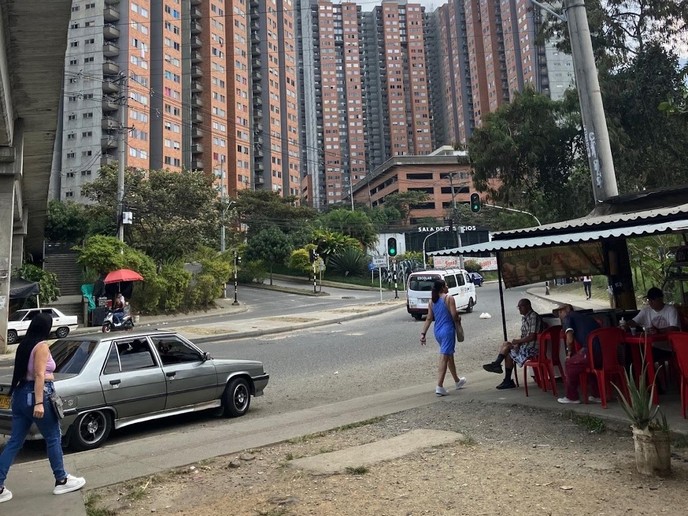Standing up to illicit governance in social housing
Urban housing insecurity often leads to informal settlements on the periphery of cities. These communities are vulnerable to criminal actors who control and extort residents. Rather than alleviating criminal oppression, the transition to state-sponsored public housing often includes the transfer of criminal oppressors. Funded with support from the Marie Skłodowska-Curie Actions programme, the Social Housing project analyses this dynamic and explores the implications for society and the environment.
Illicit governance
Through training at the Weatherhead Center for International Affairs at Harvard University and the University of Amsterdam, project fellow Frank Müller built a transferable approach to understanding illicit urban governance. Field studies focused on informal and formal housing communities in Medellín, Colombia and Rio de Janeiro, Brazil. With increasing environmental stress and a shift toward more authoritarian governance around the world, the project offers timely insights. Müller says: “The weaponisation of urban development, particularly affecting the low-income sector, has heightened public awareness of criminal influence.” The groundwork for Müller’s approach in comparative ethnography was laid by Charles Tilly, who connected war-making and state-making. Wars create the opportunity for establishing and legitimising states. Similarly, organised crime creates the opportunity for illicit governance in cities. The research network Illicities explores how the convergence of licit and illicit governance actors co-produce cities.
Criminal control of communities
When residents are rehoused from informal settlements to state-run housing complexes, the organised criminal groups that control them follow. According to Observatório das Metrópoles more than 50 % of Rio de Janeiro’s territory is under the control of militias or paramilitary groups. While sometimes there are visible manifestations of this control, such as barricades or armed guards, often the oppression is invisible. Armed actors control vital urban services such as transportation and access to water, electricity and gas. Criminal groups appoint representatives and determine which political candidates oppressed communities must support. They intervene in the rehousing process by buying and subletting units and exerting influence on who will receive public housing. Criminal control impacts the economic, social and political lives of social housing residents.
Intersection of environmentalism and authoritarianism
The need for robust environmental policies could not be greater, but in communities controlled by criminal gangs, environmental protection is not a priority. Thus, illicit governance has a direct impact on global climate concerns. Since cities are created by both licit and illicit players, the environmental impact of social housing is not exclusively a criminal problem. Just as criminally-controlled communities fail to prioritise environmental protections, Müller draws a direct line between the rise of authoritarianism and environmental degradation. According to Müller: “In light of the extent to which transparent, democratic, and human and environmental rights-respecting procedures are on the retreat world-wide, we should be prepared to witness a more violent backlash against global efforts to mitigate climate change effects.” The comparison between organised crime and authoritarian regimes underscores the transferability of Müller’s insights and their importance. While European cities and states do not have the same structures of organised crime influencing social housing, Europe - and the rest of the world - must guard against the rise of authoritarianism and its effects on the environment.
Keywords
Social Housing, illicit governance, authoritarianism, organised crime, Illicities, environmental impact, urban housing, Charles Tilly



